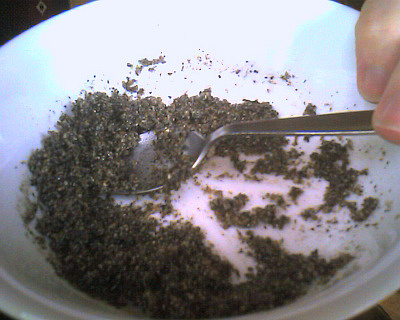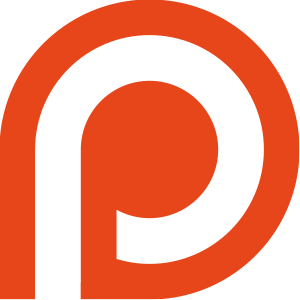The Food Experiments
Inspired by Rob Rhinehart's “Soylent” project, I've been changing my diet. I'm trying to improve three aspects: Nutrition, portability, and price.
I've always had problems with eating. I don't like eating food, so I often don't eat enough of it. And I'm extremely sensitive to taste, so most foods are overwhelmingly strong and I can't eat them. Between those two things, I don't try new foods very often.
Previously, the main parts of my diet were rice, cheese, apple juice, and a multivitamin. For such a limited diet, that's not bad. But it's not great either. I think I was deficient a bunch of nutrients, including potassium. And the other downsides of cheese are that it needs to be refrigerated and that it's relatively expensive. The cheese I ate was costing more than $2 per day by itself, and all my food together cost about $4.18 per day. (All prices here are listed in US dollars and cents because that's the local currency.)
Replacing cheese wasn't easy, though. As far as I can tell, it was:
- my only source of protein
- my only source of fat
- my only source of sodium
- my only source of calcium
So what did I do?
Building a new diet
Well, I needed information. I got a lot of that from this website that lists food content and this tool to estimate my nutrient needs, both of which are based on USDA data. (It could be better, but it's a lot more reliable than most nutrition information on the Internet.) Bear in mind that the nutrient needs are an approximate, and vary between people and environments. For instance, it recommends 2700 calories per day for someone of my height, weight, sex, and activity level, but when I'm eating the amount that feels right to me, I usually eat around 2300 calories (estimated).
Then I looked at the foods that are available cheaply at the local grocery store.
The ruler of calories-per-dollar is vegetable oil - it costs about 56 cents to get me 2300 calories. The downside of vegetable oil is that it has nothing but calories in it.
Next up are the grains - wheat flour, corn meal, rice, beans. They range from $1 to $2 for 2300 calories. They provide a lot of calories from carbohydrates, mostly complex carbs. The beans also provide a lot of protein, potassium, fiber, and a lot of the micronutrients as well.
I started eating black beans, which are very nutrient-dense and have a very bland taste.
As soon as I started eating black beans, my nose cleared up. My nose has always been stuffy – I've never been able to comfortably breathe through my nose, at least not if I want to get enough air. Now I can breathe through my nose easily – in fact, I was doing it without even noticing while I wrote this paragraph. I figure the stuffiness must have been a symptom of some nutrient deficiency.
So my new diet is based on black beans and canola oil. I also got a new multivitamin/multimineral pill that's more comprehensive than the one I was taking.
Black beans are about 25% protein by calorie. They aren't a “complete protein” in the strictest sense of the term, but I looked at their actual amino-acid content and the intake recommendations, and since I'm eating so much of them, I should meet all the recommended amounts. The main things still missing are sodium and calcium – the body needs too much of them to fit in a pill. Sodium is easy – I just add table salt. For some reason, I have no problem eating things that are very salty.
Most calcium-rich foods are much more expensive than the oil and beans. Some people take supplements in the form of purified calcium carbonate or calcium citrate, which are much cheaper (per calcium) than the foods. I was planning on doing that. But then I learned that eggshells, which are mostly calcium carbonate, are an effective source of calcium too. (But be careful - uncooked eggshells, like uncooked eggs, can carry salmonella, so make sure to cook them first.) One of my family members eats eggs frequently, so I'm having zem save zir eggshells to add to my meal.
In theory, if I eat nothing else, these ingredients will cost somewhere between $1.30 and $1.50 per day, and provide all the nutrition I need.
Problem: Black beans mixed with canola oil and eggshells were disgusting to eat. And cooked beans still require refrigeration. I had to do something about that.
Preparing the new food
I rarely leave my house. Part of the reason for that is that everything I need is here; the other part is that traveling is inconvenient. I want to eventually start going out more, so I'm working on making travel more convient. One thing I'm doing is training my bicycle endurance. Another is making a food that I can easily carry for a day without refrigeration.
To do that, I dehydrated the beans. Right now, I'm doing it by cooking them in an oven for about two hours at 250°F (121°C), opening the door sometimes to let out the steam. But I'm hoping to build a solar dehydrator to reduce the amount of heat it lets into the house (and also to save electricity).
Dried beans are very hard, which makes them difficult to eat. So I grind them into powder. I was lucky that we already have a hand-powered food grinder in the house. (We also have an ancient blender, but it's very loud, incovenient to clean, and makes an inconsistent product). I also throw the eggshells into the grinder with the beans, and get a bean powder / eggshell powder mix.
Both canola oil and dry bean powder can keep for a very long time without refrigeration.
When I want to eat it, I pour out some powder, add oil until it's not too dry to eat, and add salt. I get this:

It's pretty tasteless except for the salt. It sticks to itself a bit, so it's hard to spill, which makes it a good thing to snack on while I work. Although it would be even better if I could make it into crackers so that I don't need the bowl and spoon.
That amount is about half a meal. It's very high in calories-per-size (which makes it even better for travel) because it has essentially no water or air in it, and has a lot of fat in it. A full bowl of it would be more than a day's food.
I haven't switched over to eating this exclusively (and probably won't), but I'd like to try going for a few days on just this stuff to see how it works out.
Lastly, people say that you fart more if you eat lots of beans, but I haven't noticed myself farting much more than usual.
– Eli
Approximate readability: 6.32 (4929 characters, 1160 words, 75 sentences, 4.25 characters per word, 15.47 words per sentence)

 Are my blog posts helpful to you? Consider pledging a few $$$ on Patreon so I can keep putting cool things online for free.
Are my blog posts helpful to you? Consider pledging a few $$$ on Patreon so I can keep putting cool things online for free.
Comments